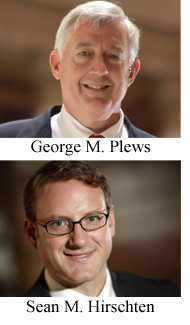Known Loss Means Known Loss: Thomson Inc. v. XL Ins. Am., Inc., 22 N.E.3d 809 (Ind. Ct. App. 2014), transfer denied, — N.E.3d —; July 2, 2015, No. 49A02-1401-PL-9 (Ind. 2015).
 The Indiana Supreme Court has denied the insurer’s petition for transfer in Thomson Inc. v. XL Ins. Am., Inc., 22 N.E.3d 809 (Ind. Ct. App. 2014). This decision helpfully clarifies Indiana law regarding the so-called “known loss” doctrine.
The Indiana Supreme Court has denied the insurer’s petition for transfer in Thomson Inc. v. XL Ins. Am., Inc., 22 N.E.3d 809 (Ind. Ct. App. 2014). This decision helpfully clarifies Indiana law regarding the so-called “known loss” doctrine.
This appeal involved two sites, one in Taiwan and one in Ohio. Thomson had acquired a factory in Taiwan from General Electric in the late 1980s. In 1992, Thomson sold the site to a third party.
In 1994 the Taiwan government became aware of contamination at the site, and requested that Thomson remediate. As a former owner, Thomson was not legally required to conduct any such remediation, but Thomson voluntarily funded a soil cleanup that resulted in a “no further action” letter from the Taiwan government. However, Thomson refused to engage in any groundwater remediation, contending that the groundwater did not pose any health risk, and that natural attenuation was the best way to deal with any contaminants.
But politics changed the legal environment in Taiwan. In 2000, the Taiwan legislature passed the Soil and Groundwater Remediation Act, which imposed CERCLA-style retroactive liability on former owners. Then in 2002 the Taiwan authorities, pursuant to the 2000 Soil and Groundwater Remediation Act, issued an order requiring Thomson to more actively remediate the groundwater. Thomson complied with the 2002 Order, and turned to its liability insurers to defend and indemnify it.
Thomson’s insurers denied coverage. One, XL, claimed Thomson “knew” it be liable years earlier, when it cleaned up the soil. The issue wound up in the Court of Appeals. The Court of Appeals agreed with Thomson, holding that:
Thomson, 22 N.E.3d at 816.
The facts of the Ohio site were different, but the result is another important win for policyholders. There, Thomson agreed to general terms in a Consent Order in 1994 that it would investigate potential contamination at the site and implement remedial actions. No remediation was ordered. In 2011 the OEPA issued another order requesting additional soil sampling, from a “Raw Materials Handling Area,” an area of the plant that had not been discussed in the Consent Order.
XL argued that the Consent Order governed the entire site, not just the areas it specifically ordered investigated. The Court of Appeals reversed, holding that a material issue of fact was created by (1) the language of the 2011 order itself, which stated that the Raw Materials Handling Area was not included in the 1994 Consent Order, and (2) the testimony of Thomson personnel that the Raw Materials Handling Area was not subject to the Consent Order. Thus, summary judgment in favor of XL was not appropriate.
The Supreme Court’s denial of transfer is a significant victory for policyholders. The Court of Appeals’ opinion makes clear that the known loss doctrine will be strictly construed under Indiana law. If under the law or the facts of the case the insurer cannot show the policyholder was substantially certain at the time the policy was purchased that it would be held liable for the loss, the “known loss” doctrine will not bar coverage. This is critical in retaining coverage in such “long tail” claims, where liability is not certain (or, in the case of Taiwan, even possible) when the covered harm takes place.
Thomson is represented in this case by George M. Plews and Sean M. Hirschten. If you have any questions, please feel free to contact them.
Categorized: News

